Politics
Cash-strapped Taliban look to airspace for windfall
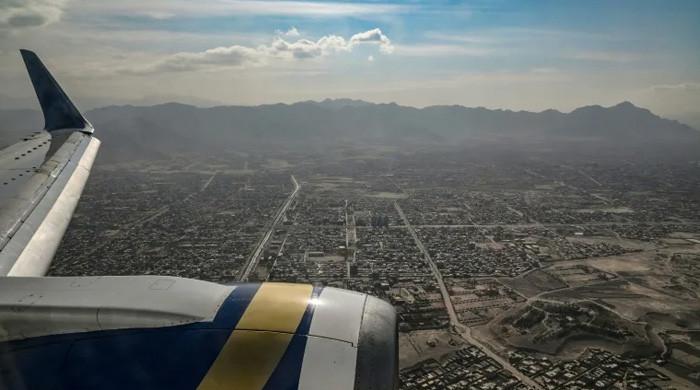
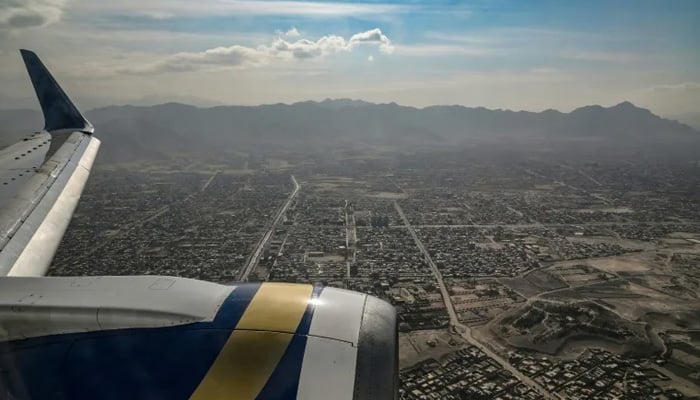
Far above Kabul, the cash-strapped Taliban government has located a potentially lucrative revenue stream: Afghanistan’s airspace.
As Israel and Iran’s exchange of missiles threw flight paths into disarray this year, the skies above Afghanistan offered carriers a less turbulent and faster route to ply — for a flat $700 overflight fee, according to industry insiders.
The US aviation authority eased restrictions on the country’s airspace and paved the way for commercial flyovers in 2023, two years after the Taliban takeover.
Airspace that had long been avoided — as the country endured four decades of war and shifting powerbrokers — suddenly became a viable option, allowing carriers to abbreviate routes and save on fuel costs.
But it was not until the 12-day war between Iran and Israel in June that the route really gained traction, allowing the Taliban government to potentially rake in millions.
Faced with shuttered airspace over Iran and Iraq, and unpredictable openings and closures across the Middle East, airlines saw reason to divert course and found refuge over Afghanistan.
While missiles clogged the neighbouring airspace, “the risk of flying over Afghanistan (was) virtually zero”, said France-based aerospace and defence consultant Xavier Tytelman.
“It’s like flying over the sea.”
May’s average of 50 planes cutting through Afghanistan each day skyrocketed to around 280 after June 13, when war erupted in the neighbourhood, data from tracking website Flightradar24 showed.
Since then, in any given day, more than 200 planes often traverse Afghanistan — equivalent to roughly $4.2 million a month, though this figure is difficult to verify as the authorities do not publish budgets and have declined to comment.
Politics
UAE leadership hosts public iftar in Dubai, projects message of unity, resilience
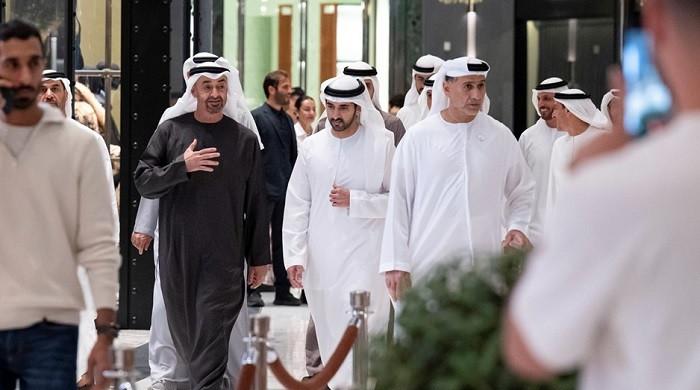
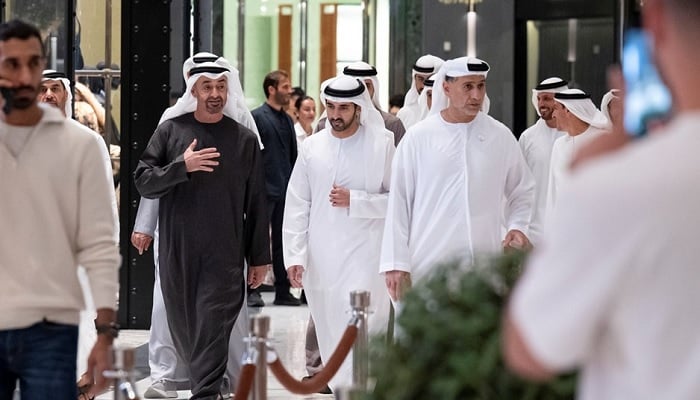
DUBAI: The President of the United Arab Emirates, Sheikh Mohammed bin Zayed Al Nahyan, observed iftar at Dubai Mall alongside senior members of the leadership, including the Crown Prince of Dubai, Sheikh Hamdan bin Mohammed bin Rashid Al Maktoum.
The iftar took place within the mall premises with members of the UAE leadership present, underscoring a message of unity, stability and resilience.
The gathering came amid regional tensions, with officials repeatedly stating that the country remains safe and secure.
Video circulating on social media showed the leaders moving through the venue, where shoppers gathered and waved as they passed.
Many visitors appeared surprised to see the UAE leadership at the location.
In one widely shared moment, a visitor from Ghana expressed excitement after meeting the President, describing the encounter as memorable. The President exchanged brief words with him and wished him an enjoyable stay.
The public presence drew attention inside the busy shopping destination, often described as one of the world’s largest malls.
Politics
IRGC targets US intelligence centers, military depots in 11th wave of attacks
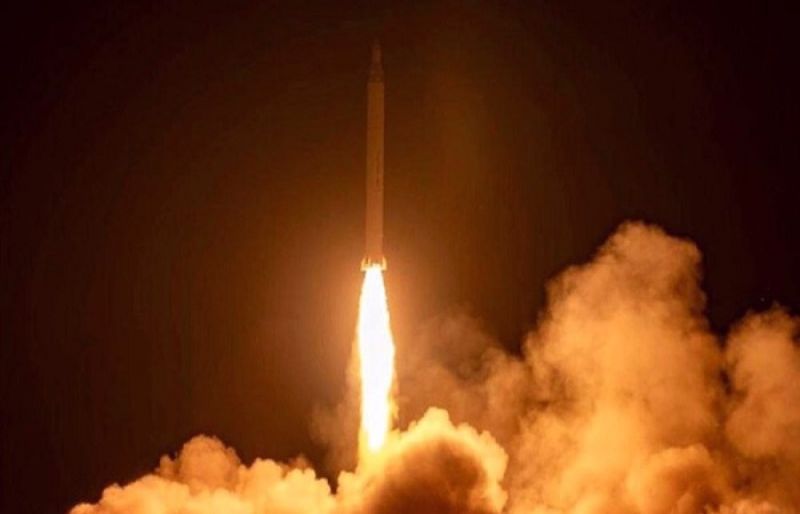

The Iranian armed forces have started a new wave of extensive drone and missile attacks on targets in the Israeli-occupied territories and US assets in regional countries.
A late Monday statement from the Islamic Revolution Guards Corps (IRGC) said that the 11th wave of offensive attacks under Operation True Promise 4 had been launched by the naval and aerospace units of the elite force.
The statement said the “extensive and high-density operation” had targeted American intelligence centers and military support warehouses in the Persian Gulf region, the Israeli communications industries complex in the occupied city of Beersheba, as well as 20 locations in the occupied regions of Tel Aviv, West al-Quds, and Galilee.
It said the “brave sons of Iran’s armed forces” had used more than 700 drones and hundreds of missiles to hit 60 strategic targets and 500 military locations linked to the United States and the Israeli regime since the start of the US-Israeli aggression on Iran on Saturday.
The statement said the number of missiles and drones and the success rate of the attacks had far outpaced records seen during the 12-day war with Israel and the US in June 2025.
The IRGC said recent “brutal and terrorist” attacks on Iran that targeted citizens in hospitals, schools, and offices of the national media service (IRIB) had further strengthened their resolve and determination to pursue an all-out war against the enemies.
The IRGC has been carrying out retaliatory attacks on US military assets across the region and on targets in the Israeli-occupied territories since Saturday, when the US and Israel started the unprovoked war of aggression against Iran and assassinated Leader of the Islamic Revolution Ayatollah Seyyed Ali Khamenei.
Politics
Israeli PM’s fate unclear after ‘surprise’ missile attack on his office: IRGC
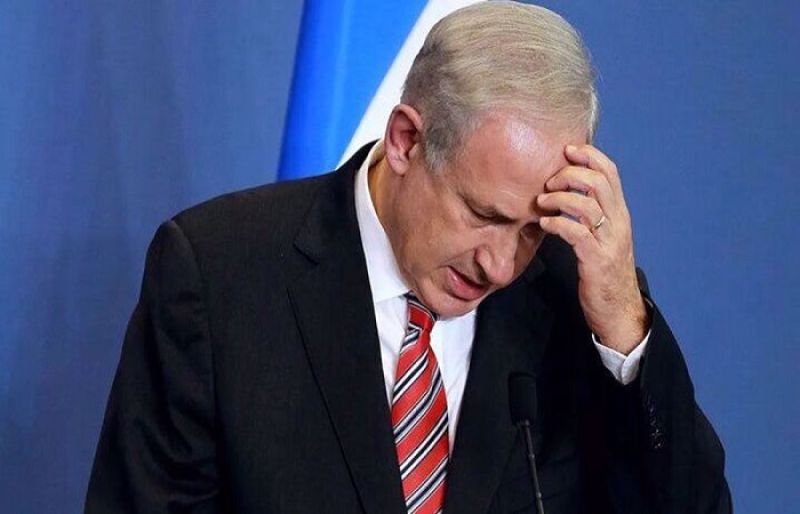

The Islamic Revolution Guards Corps (IRGC) says the fate of Israeli prime minister Benjamin Netanyahu is uncertain following “purposeful and surprise” attacks on his office and the residence of the regime’s air force commander.
In a statement on Monday, the IRGC said Iranian Armed Forces heavily attacked the office of Israel’s criminal prime minister and the residence of commander of the Israeli air force.
They were hit during “purposeful and surprise” attacks by Kheybar missiles, the elite force stated.
According to the statement, the 10th phase of Iran’s successful missile attacks on occupied territories focuses on the Israeli regime’s premises.
The IRGC said it would later announce the achievements of the attacks and provide further information.
The United States and Israel launched a joint war of aggression against Iran early on Saturday, assassinating Leader of the Islamic Revolution Ayatollah Seyyed Ali Khamenei and several senior military commanders before attacking military and civilian sites across the country.
Iranian armed forces have responded with massive missile and drone strikes, hitting strategic targets deep inside the Israeli-occupied territories as well as American military bases scattered across the region.
Iranian authorities say the retaliatory attacks will continue as long as necessary and that it will be the Islamic Republic that will decide when and how the war will end.
-

 Business6 days ago
Business6 days agoHouseholds set for lower energy bills amid price cap shake-up
-

 Politics5 days ago
Politics5 days agoWhat are Iran’s ballistic missile capabilities?
-
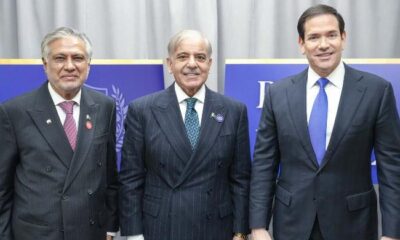
 Entertainment1 week ago
Entertainment1 week agoTalking minerals and megawatts
-

 Business6 days ago
Business6 days agoLucid widely misses earnings expectations, forecasts continued EV growth in 2026
-

 Sports1 week ago
Sports1 week agoEileen Gu comments on Alysa Liu’s historic gold medal
-
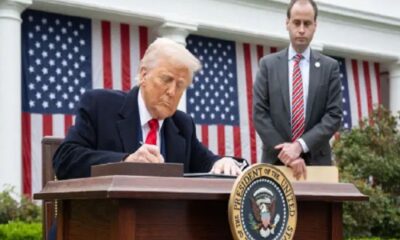
 Politics1 week ago
Politics1 week agoSupreme Court ruling angers Trump: Global tariffs to rise from 10% to 15%
-

 Sports1 week ago
Sports1 week agoSouth Africa thrash India by 76 runs in T20 World Cup Super 8 – SUCH TV
-

 Business1 week ago
Business1 week agoGovt to return unclaimed EPFO deposits, expand scholarships for unorganised workers’ children – The Times of India






